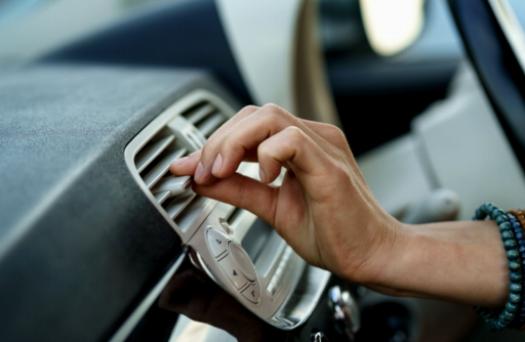Many car owners consider tinting their vehicle's windscreen as a DIY project to save money and customize their ride. However, there are significant risks and dangers associated with improper application of tinting film. From safety hazards to legal compliance issues, it is crucial to understand the importance of professional installation when it comes to windscreen tinting. In this article, we will explore the various dangers of DIY windscreen tinting and why it is best left to the experts.

Understanding Windscreen Tinting Basics
Windscreen tinting is the process of applying a darkened film to the windows of a vehicle in order to reduce the amount of sunlight and heat that enters the interior. This film is typically made of a thin, adhesive material that is applied to the inside of the windows. Windscreen tinting can not only enhance the appearance of a vehicle, but also provide privacy for the occupants inside.
The Importance of Professional Installation
Windscreen tinting may seem like a relatively simple task, but in reality, it requires a level of expertise that can only be obtained through professional installation. Professional installers are trained and experienced in applying tinting films to windscreens, ensuring that the job is done accurately and efficiently. This not only ensures a clean and polished finish, but also reduces the risk of bubbles, creases, or other imperfections that can occur with DIY installation. By entrusting the job to a professional, car owners can guarantee that their windscreen tinting is done correctly and will provide the desired benefits without any unforeseen issues.
Legal Considerations and Compliance
When it comes to windscreen tinting, it is important to consider the legal requirements and regulations that govern this process. In many regions, there are strict guidelines regarding the darkness of tint that is allowed on vehicle windscreens. Failure to comply with these laws can result in fines, penalties, and even having your vehicle deemed unroadworthy. It is important to consult with a professional tinting service to ensure that your tint meets legal requirements and is applied correctly. By following the legal considerations and compliance guidelines, you can avoid potential legal issues and ensure the safety and legality of your vehicle.
Risks of Improper Application
Improper application of windscreen tinting can lead to a number of risks and complications. One of the most common issues with DIY tinting is the presence of bubbles and creases in the tint film. This can obstruct the driver's view and cause distractions while on the road. In addition, if the tint is not applied evenly or properly, it can result in unsightly patches or streaks that can impair visibility.
Another risk of improper application is the potential for the tint to peel or bubble over time. Poorly installed tint can lead to moisture getting trapped between the film and the glass, causing it to lift and deteriorate. This not only looks unappealing, but it can also compromise the structural integrity of the windscreen and reduce its effectiveness in blocking UV rays and reducing heat.
Furthermore, if the tint is not cut and fitted correctly, it can leave gaps around the edges of the windscreen, creating weak points that are prone to tearing and lifting. This can compromise the overall durability and longevity of the tint film, requiring costly repairs or replacements in the future.
Overall, the risks of improper application of windscreen tinting highlight the importance of seeking professional installation to ensure a quality result that not only enhances the appearance of the vehicle but also maintains the safety and functionality of the windscreen.
Safety Hazards Associated with DIY Tinting
When it comes to DIY windscreen tinting, there are significant safety hazards that must be considered. Improper application of tint film can result in reduced visibility on the road, increasing the risk of accidents. In addition, poorly installed tint film can cause glare and distortion, further compromising the driver's ability to see clearly while driving. It is crucial to prioritize safety when it comes to tinting your windscreen and seek professional installation to avoid these potential hazards.
Impact on Warranty and Insurance
When it comes to windscreen tinting, the impact on your warranty and insurance is an important factor to consider. DIY tinting may void your vehicle's warranty as it may be seen as a modification that can impact the functionality of the windscreen. Additionally, insurance companies may also consider DIY tinting as a risk factor, potentially leading to increased premiums or even denial of coverage in case of a claim related to the tinting. It is crucial to consult with a professional installer to ensure that any tinting done complies with warranty and insurance requirements to avoid any negative consequences.
Potential for Reduced Visibility and Glare
One of the most significant risks associated with DIY windscreen tinting is the potential for reduced visibility and glare. When tinting the windscreen improperly, the film may cause distortion or obstruction of the driver's view. This can be extremely dangerous, especially in low light conditions or adverse weather. Additionally, certain tint films may create glare or reflection, making it difficult for the driver to see clearly. This can significantly impair the driver's ability to react to sudden changes in the road ahead, increasing the risk of accidents. It is crucial to prioritize safety on the road and ensure that windscreen tinting is done by a professional to avoid these potential hazards.
